Last August I wrote a column in The Spectator’s US edition urging Donald Trump to take a leaf out of Alexander Lukashenko’s book and campaign for re-election on a vodka-and-sauna approach to managing the pandemic. Belarus was one of a handful of European countries not to impose a lockdown last year, with the President urging his citizens to have plenty of vodka and lots of saunas to avoid infection.
To the consternation of other European leaders, Lukashenko’s laissez-faire approach hasn’t proved a disaster — Belarus’s death toll from the virus currently stands at 2,780, although some people don’t believe the official figures — and I thought it was funny that a politician described as ‘Europe’s last dictator’ and who looks like a Ruritanian despot has turned out to be better at navigating the Covid crisis than many of his more sophisticated peers.
But I now feel slightly ashamed about making light of this 66-year-old tyrant. On Sunday, a Ryanair flight from Athens to Vilnius was rerouted to Minsk, after what appears to be a fake bomb scare, so that an opposition journalist, Roman Protasevich, could be arrested by the Belarusian police. As the plane was being escorted through Belarus’s airspace by a MiG-29 fighter, supposedly on the orders of Lukashenko, Roman told another passenger: ‘The death penalty awaits me here.’ That isn’t an exaggeration. The blogger was charged with inciting public disorder and social hatred after his coverage of the 2020 presidential election. The operation, which has been called a ‘state-sponsored hijacking’, was overseen by the Belarusian security service, ominously known as the KGB.
Predictably, Ryanair didn’t cover itself in glory. No one condemns the pilots for landing in Minsk, but the airline issued a statement afterwards that apologised to the passengers for the ‘regrettable delay’ but made no mention of the dissident’s arrest or that of his 23-year-old girlfriend. Did the owner, Michael O’Leary, not want to offend Lukashenko? This produced some caustic responses on social media, with one wag suggesting that ‘most of our passengers reach their destination safely’ should be the company’s new slogan. After the outcry, O’Leary appeared on Irish radio and made good on his omission.
The episode has been widely condemned by western leaders, from Ursula von der Leyen to President Biden. Dominic Raab, the Foreign Secretary, blamed Putin, saying that Lukashenko wouldn’t have acted so boldly without prior approval from the Russian authorities. The EU has said it will increase sanctions on Belarus, and several airlines have announced they will no longer fly over Belarusian airspace.
It’s heartening to see these expressions of solidarity with the 26-year-old blogger, but also slightly irritating that western leaders only stand up for press freedom when it suits their agenda. Had Nicola Sturgeon forced a flight to divert to Edinburgh so that a 55-year-old white male could be arrested for ‘Islamophobia’ I doubt there would have been an international outcry. Last week, a feminist campaigner in Scotland called Marion Millar was told to report to her local police station because she’d said something ‘transphobic’ on Twitter. No politicians have condemned that violation of free speech.
Still, for a pro-free speech campaigner like me, the treatment of Protasevich puts cancel culture in perspective. It’s one thing to be summoned to a police station in East Kilbride, another to be bundled off to Minsk’s equivalent of the Lubyanka by the secret police. Several of Protasevich’s colleagues warned he might be tortured and, as if to confirm that, he popped up on Belarusian state TV on Monday and confessed ‘to having organised mass unrest’ last year. Presumably the penalty for such insurrection is more than the £10,000 fine that organisers of anti-lockdown protests face in England.
Free speech is in greater peril in Britain than at any time since the second world war, with new threats emerging every day. But this state-sponsored hijacking is a reminder that there’s still a profound difference between the liberal West and countries like Russia, China, North Korea, Iran and Belarus. My heart goes out to this poor young journalist, sitting alone in his cell, contemplating his fate. In Britain, challenging powerful political forces can get you into trouble. But in some dark corners of the world, it can still lead to death.
Got something to add? Join the discussion and comment below.
Get 10 issues for just $10
Subscribe to The Spectator Australia today for the next 10 magazine issues, plus full online access, for just $10.
You might disagree with half of it, but you’ll enjoy reading all of it. Try your first month for free, then just $2 a week for the remainder of your first year.


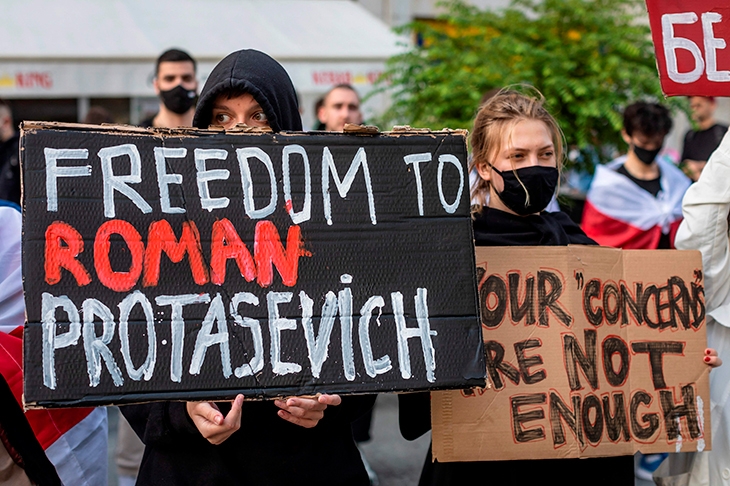
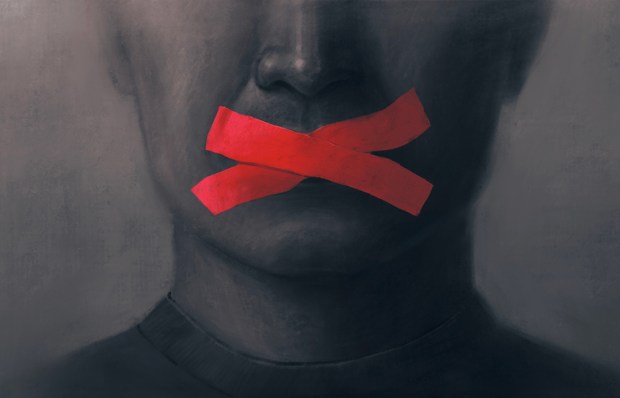


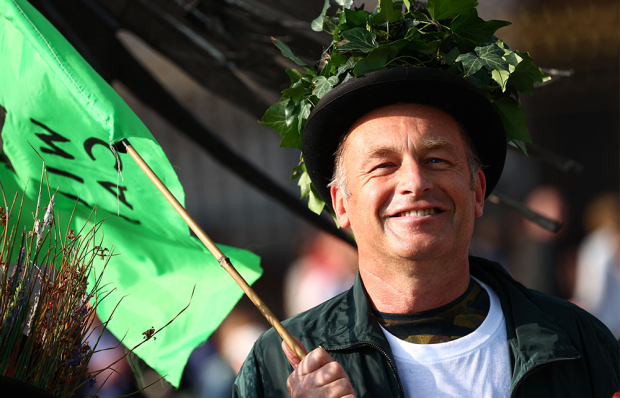
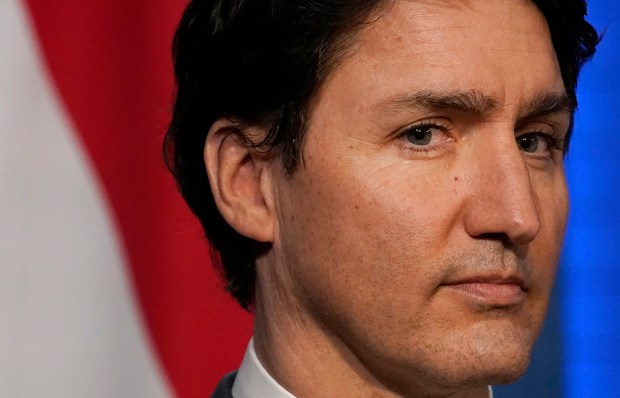
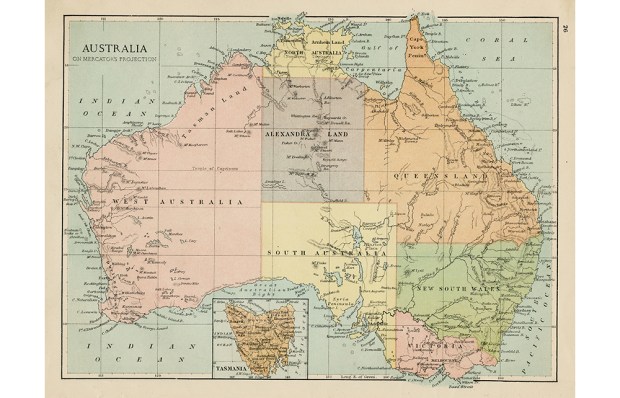






Comments
Don't miss out
Join the conversation with other Spectator Australia readers. Subscribe to leave a comment.
SUBSCRIBEAlready a subscriber? Log in